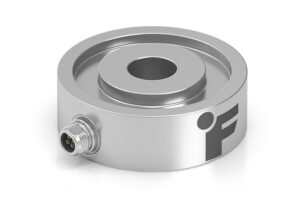In the automotive industry, quality testing is a critical component to ensure safety, durability, and compliance with performance standards. Automated quality testing systems now play a pivotal role in the evaluation of key vehicle components such as brakes, suspension systems, and chassis structures. By integrating a network of advanced sensors, control devices, and data management platforms, manufacturers can achieve higher precision, operational efficiency, and proactive maintenance—all in real time.
How Automated Quality Testing Works
Automated testing systems combine robust hardware and intelligent software to perform detailed evaluations of automotive components under stress. The architecture is built around data acquisition and processing units that measure force, pressure, and temperature during operational simulations.
Force and Load Data Capture 
To evaluate the mechanical resistance of suspension and chassis systems, Futek LTH350 load cells are installed to measure compression forces. For tension monitoring in cables and structural elements, Futek LSB206 load cells are used. These load cells are connected to the Futek USB225 amplifier, which conditions and transmits the signals to a PC for analysis using software like Sensit or LabView.
Pressure Monitoring
In hydraulic brake and suspension systems, Futek PTF pressure sensors record pressure levels and detect when values exceed safety thresholds. In addition, Futek LLB400 and LSB201 load cells measure the physical force applied to brake pedals, allowing fine-tuning of braking sensitivity. All pressure-related data is channeled through USB modules and IAA 100 amplifiers to facilitate centralized real-time analysis.
Thermal Evaluation
Components such as brakes and engines are subject to extreme temperatures during testing. MadgeTech TCTemp1000 temperature loggers, equipped with thermocouples, monitor thermal conditions throughout test cycles. The collected temperature data is analyzed using MadgeTech4 software, with results exportable in Excel or CSV formats for correlation with force and pressure data.
Data Processing and Logic Control
The SENECA Z-LOGGER3 datalogger consolidates all signals from load cells, pressure, and temperature sensors. It communicates with SEAL software, a free platform that supports object-oriented programming. This allows for detailed control logic, including automation routines, alarms, threshold management, and timer-based actions.
Alerts and Notifications
SEAL software includes features for remote configuration and alerts through GSM devices (via SIM or static IP). It also enables the generation of automated reports and alarms to promptly respond to deviations in test results, ensuring fast intervention when safety parameters are exceeded.
Centralized Monitoring
All processed data is integrated into the SENECA IoT platform, enabling real-time, cloud-based monitoring. This centralized system supports predictive analytics, which helps plan maintenance activities more effectively, minimizing unplanned downtime.
Advantages of Automated Quality Testing Systems
-
Comprehensive Automation: Integration of sensors and intelligent software ensures accurate and repeatable testing processes.
-
Continuous and Reliable Connectivity: Networked devices enable uninterrupted data flow and monitoring.
-
Predictive Maintenance: Detects performance anomalies before they lead to system failures, reducing operational costs.
-
Real-Time Monitoring and Response: Immediate alerts enable rapid corrective actions.
-
Centralized Data Management: Provides a complete performance profile for all tested components, enhancing strategic planning.
-
Process Optimization: Detailed, correlated test data allows fine adjustments that improve product quality and reliability.
Conclusion
Automated quality testing systems represent a key advancement in automotive manufacturing, enabling real-time evaluation and predictive maintenance of critical components. Through the use of advanced load cells, pressure sensors, temperature loggers, and centralized data platforms, manufacturers can meet the highest standards of safety, performance, and efficiency. By implementing this technology, the automotive industry can ensure reliable product validation while reducing testing time and operational risks.
sales@logicbus.com | support@logicbus.com | +1 619 616 7350 | Start conversation






